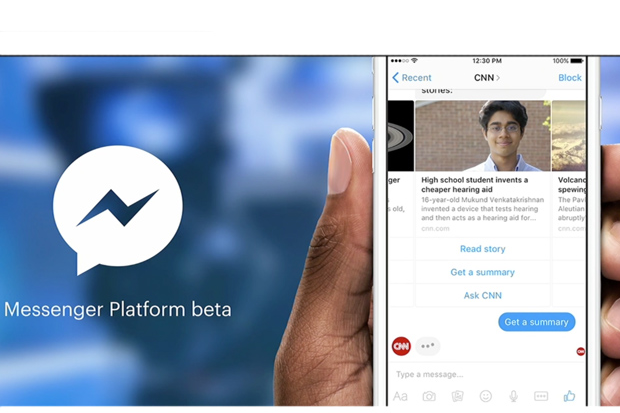Design A App For Wifi Controlled Bot
By , Contributor, Computerworld |
Bots are the new generation of apps
Bots are becoming one of the most fascinating technology trends of modern software applications. In some perspectives, Bots are starting to be considered a new generation of apps after websites and mobile apps. If Bots are the new apps, then voice could be considered the new UI, artificial intelligence the new protocol and messaging apps the new browser.

Bots (or chatbots) seem to be taking the technology world by storm. Not a week goes by without some exciting announcements related to chatbots. Recently, at the F8 conference, Facebook announced a new chatbot platform for its messenger app. This announcement comes just a few days after Microsoft's release of its Bot Framework at the Build Conference. While we are still in the early days of the "Bot revolution," we can clearly see how chatbots are going to become an integral part of the consumer and enterprise software ecosystem.
The rise of chatbots has been catalyzed by the increasing advancements in artificial intelligence (AI) and voice platforms that are called on to power a new generation of software applications. From that perspective, chatbots can be considered a 3rd generation platform, following the web and mobile apps. Similarly, messaging platforms can be considered the new runtime following the web and mobile operating systems.
Web ==> mobile apps ==> bots
Web ==> mobile OS ==> messaging platforms
In this new world, we can think about voice as the new user interface, bots as the new apps, and AI as the new protocol.
Voice is the new UI
Recently, I've written extensively on how conversational interfaces in general, and voice interfaces specifically, are set to play a pivotal role in the next generation of software applications. From this perspective, voice can be considered the next evolution of the user interface. The metaphor applies if we think about conversational interfaces as a new mechanism to guide the interactions of a user with a software application.
In a conversational user experience, a user will interact with software applications by using semantically rich commands and very simple user interfaces. Unlike its predecessors, a conversational UX can express the same action using a large number of language variations using constructs like synonyms, slang phrases, etc. Additionally, a conversational UI should leverage linguistic analysis and artificial intelligence to gradually improve as users interact more with it.
Bots are the new apps
If voice and conversation is the new UX then bots can be considered the new apps. From that perspective, bots extract a specific task or processes that can be accomplished using a conversational UX. Different from traditional apps, chatbots typically run in a messenger application which, ironically, can be considered an app from the "previous generation." I know, it's crazy …
From the functional standpoint, chatbots should be able to issue voice and text commands and receive responses in the form of the text in simple user interfaces. While most people consider chatbots text-only interfaces, we are already seeing the first iterations of simple UX models that can be used in bot solutions. As chatbots evolve, we should expect to see new platforms that automate important elements of its lifecycle such as testing, monitoring, discovery, security, etc.
AI is the new protocol
Artificial Intelligence (AI) is an essential component of chatbot solutions. While we should expect to see plenty of "dumb" bots, the really good ones will leverage AI techniques such as linguistic analysis, image recognition, concept inference, sentiment analysis, text enrichments, and many other techniques in order to enrich the user experience. Just like humans, intelligent bots are supposed to improve the communication and efficiency as they interact more with users.
Messaging apps are the browser
Messaging applications such as Slack, Skype, or Facebook Messenger are engineered to play the role of a "browser" for chatbot solutions. From this perspective, messaging apps not only provide the container for chatbots but also provide mechanisms, such as discovery or provisioning, that are essential to effectively use bot solutions. Additionally, messaging apps bring native distribution channels to bot applications. While some bots are going to be optimized for specific messenger applications, we should expect to see bot solutions that work across different messaging solutions.
These are just some ideas on how I think the new world of bot solutions will unfold. Undoubtedly, bots will become an important element in the future of consumer and enterprise apps, and give us the opportunity to completely re-imagine how we interact
Jesus Rodriguez is a managing partner at Tellago, an award-winning software development agency. He is an active investor who currently serves as a board member in more than a dozen enterprise software companies and also serves as an adviser to companies such as Microsoft and Oracle.
Copyright © 2016 IDG Communications, Inc.
Design A App For Wifi Controlled Bot
Source: https://www.computerworld.com/article/3062561/bots-are-the-new-generation-of-apps.html
Posted by: lockhartthereenewhe.blogspot.com

0 Response to "Design A App For Wifi Controlled Bot"
Post a Comment